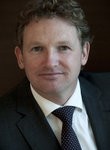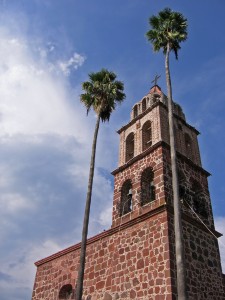 Meet Wim Bartels, Global Head of Sustainability Reporting and Assurance at KPMG. “Accountants will save the world”, said Peter Bakker, president of the World Business Council for Sustainable Development (WBCSD). If all accountants were as knowledgeable and passionate as Wim, that could really happen. Here’s what he told me about sustainability and change.
Meet Wim Bartels, Global Head of Sustainability Reporting and Assurance at KPMG. “Accountants will save the world”, said Peter Bakker, president of the World Business Council for Sustainable Development (WBCSD). If all accountants were as knowledgeable and passionate as Wim, that could really happen. Here’s what he told me about sustainability and change.
Recognizing the value and limitations of natural and human capital
In a truly sustainable world, we would recognize the value and the limitations of both natural and human capital. Many major conflicts have these themes at the heart, raising big, looming questions about the use of and access to natural resources and the way we treat people. Unless we place a value – broader than the financial one – on things other than money and property, such conflicts will prevail.
Moving from insight into action
Ideally, we’d progress to such a sustainable model by moving from knowledge to action. We’ve seen that insight into the effects of poverty, deforestation, carbon emissions, etc. does not automatically lead to massive change. Sustainability stories are often so abstract and far removed from daily life that by themselves they do not engage people to act. We need a small group of visionary change agents, perhaps 3% of the people, to act and lead the way. By showcasing innovation, positive stories and changing what’s socially acceptable, they can put the wheels in motion. This way, they unlock other levers for change, like peer pressure, societal norms and fun..
Confrontation as a catalyst for change
Unfortunately, I am concerned that change will not happen this way, but rather through more drastic events that impact our daily lives like continued extreme weather, further conflict between tribes and countries and scarcity of specific resources. Personal confrontation will then serve as the catalyst for change. It’s like watching someone drown. If you are the only one around, you’ll jump right in to help. If there are a few other people, we’ll all look at each other and eventually someone will jump in. But if there is a large crowd, we’ll expect someone else to act. Unless it’s clear to the vast majority of people, as individuals, that you’re the one that has to do something, change will be slow and incremental.
Walking the talk at work and at home
I see my own role in driving change as creating awareness and consciousness of the issues and the solutions. By working with senior leadership at our clients, I encourage them to take a leading role, transferring knowledge and skills, highlighting success stories to show it can be done. Also in my private life, I want to increase awareness and walk the talk. Our house was the first one with solar panels in our small town. Many have followed since, I believe in part because – coming from an accountant – our story about the financial return amplified the more remote stories people had already heard. I really like getting people into action, not just by raising awareness, but by encouraging people to broaden their view and look at things in a positive and more comprehensive way.
Priests rowing against the stream
To move to a sustainable world, we need people who are like priests, people who proclaim their beliefs loud and clear, who persist and continue to show the way, and who do not give up, no matter what. And we need a critical mass of people and companies to acknowledge them and follow suit. Paul Polman, the CEO of Unilever, is such a priest, but we need 500 more of people like him to inspire the next layer, a much larger group of followers and doers. The vast majority of people is still not convinced that they should act on sustainability, so the priests are still rowing against the stream.
A man on a mission – for transparency
 Sometimes I feel a bit like a preacher as well, talking about bringing sustainability closer to the business, making it mainstream. With some clients, we’re ready to move to a higher level, to make clear business sense of sustainability. That means I’ll also be preaching to another parish, to the financial leaders.
Sometimes I feel a bit like a preacher as well, talking about bringing sustainability closer to the business, making it mainstream. With some clients, we’re ready to move to a higher level, to make clear business sense of sustainability. That means I’ll also be preaching to another parish, to the financial leaders.
Transparency is a big part of my sermon – to business leaders, but also within the accountancy profession. Increasingly, companies are disclosing sustainability information, but in most cases the quality, content and communications of this information still leaves much to be desired. Developments like integrated reporting even provide a risk for a decrease in transparency, as it can lead to less information, included in the annual report, which normally focuses mainly on the company’s achievements. Companies should want to have clarity and transparency on sustainability topics – for themselves and their stakeholders. Improving the level of transparency is certainly a big part of my personal mission, to speed up discussion and action for a sustainable world.
For more information, follow Wim on LinkedIn or Twitter or follow KPMG Sustainability on Twitter.
Written by Marjolein Baghuis (@mbaghuis) Picture by © Joshua Koppelman

My most retweeted blog so far: Can accountants save the world? meet @wimbartels from @kpmgNLsust http://t.co/j6kFxUViZt
@wimbartels @KPMGNLSust on whether accountants can save the world http://t.co/UR1oCpJ5U3 … #transparency #Integratedreporting
RT @MBaghuis: New on my blog: Can #accountants save the world? Meet @KPMGNLsust @wimbartels a man on a mission for #transparency http://t.c…
RT @MBaghuis: New on my blog: Can #accountants save the world? Meet @KPMGNLsust @wimbartels a man on a mission for #transparency http://t.c…
RT @WimBartels: Can accountants save the world? http://t.co/Cb1wx4SB00
“@WimBartels: Can accountants save the world? http://t.co/bOFVOBfMYq” @nbacc
Can accountants save the world? http://t.co/JPfgsFDifR
RT @MBaghuis: New on my blog: Can #accountants save the world? Meet @KPMGNLsust @wimbartels a man on a mission for #transparency http://t.c…
RT @MBaghuis: New on my blog: Can #accountants save the world? Meet @KPMGNLsust @wimbartels a man on a mission for #transparency http://t.c…
RT @MBaghuis: New on my blog: Can #accountants save the world? Meet @KPMGNLsust @wimbartels a man on a mission for #transparency http://t.c…
RT @MBaghuis: New on my blog: Can #accountants save the world? Meet @KPMGNLsust @wimbartels a man on a mission for #transparency http://t.c…
Can accountants save the world? http://t.co/Cb1wx4SB00
New on my blog: Can #accountants save the world? Meet @KPMGNLsust @wimbartels a man on a mission for #transparency http://t.co/j6kFxUViZt